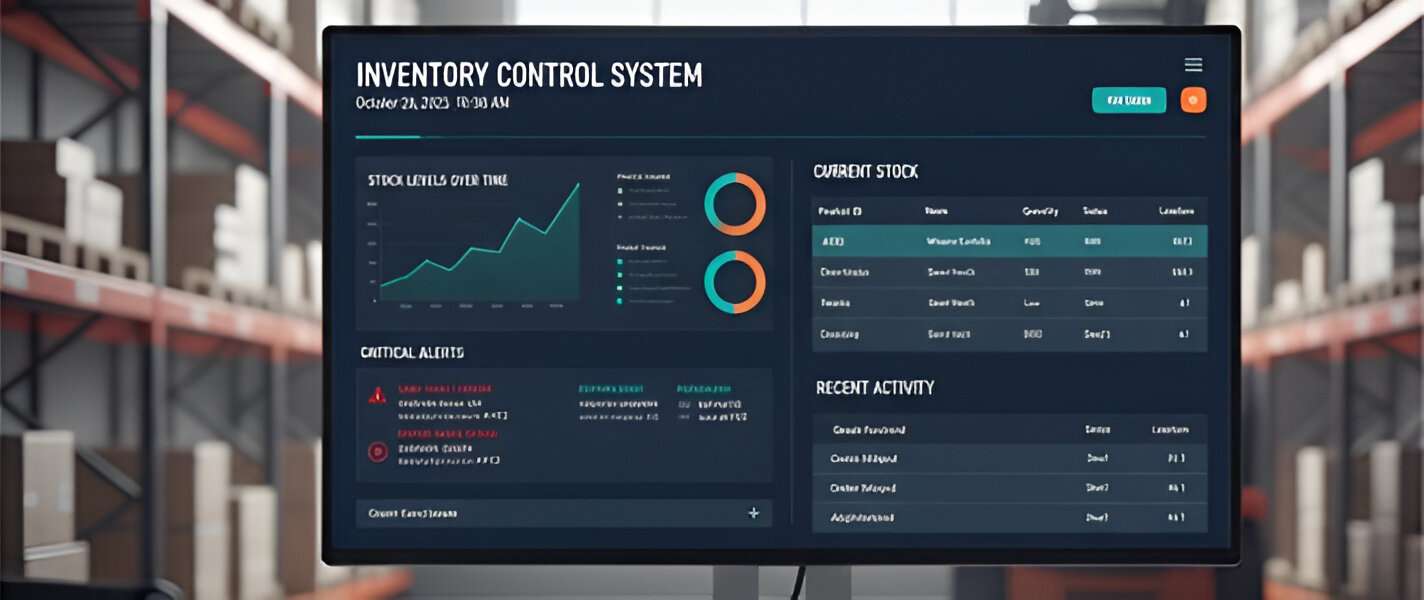Custom Inventory Management Software for Multi-Warehouse Operations

Technology Stack: Laravel, MySQL, JavaScript, RESTful APIs
Category: Inventory & Warehouse Management Solutions
Overview
Many businesses struggle with tracking inventory accurately across multiple warehouses, leading to stock discrepancies, delayed order fulfillment, and high carrying costs. To solve these challenges, we developed a custom Inventory Management System (IMS) designed to centralize stock data, automate workflows and provide real-time visibility across operations.
Our system helps businesses of all sizes track raw materials, work-in-progress and finished goods efficiently while reducing manual errors and improving decision-making.
Challenges
The client faced significant operational friction that was directly impacting their bottom line:
Manual Tracking & Data Latency: Companies often rely on outdated spreadsheets or fragmented legacy systems, causing frequent errors, delayed data updates (data latency) and requiring excessive man-hours for reconciliation.
Stock Discrepancies & Holding Costs: Lack of real-time visibility and poor demand forecasting resulted in both costly overstock (high carrying costs) and critical stockouts that halted production and delayed customer orders.
Disconnected Processes & Communication Silos: Purchasing, production and dispatch teams operated in silos, leading to poor material requirements planning (MRP), redundant data entry and slow response to changes in demand.
Limited Reporting & Compliance Risk: Management lacked flexible, insightful reports on inventory turnover, safety stock levels and reorder points, hindering strategic planning and making regulatory compliance audits difficult and time-consuming.
High Training Overhead: The complexity and lack of standardization in their old process meant new hires required extensive training, increasing onboarding costs and time-to-productivity.
Our Solution
We built a scalable, Laravel-based IMS using robust RESTful APIs to ensure seamless future integrations. Key features include:
Centralized Inventory Tracking & Multi-Warehouse Support: Monitor stock across all locations in real-time with a single-pane-of-glass view. This unified data layer eliminated multi-system data synchronization issues.
Barcode/RFID Integration: Enabled fast and accurate product scanning for all inbound (receiving) and outbound (dispatch) transactions, virtually eliminating data entry errors at the source.
Automated Alerts & Smart Reporting: Implemented dynamic low-stock notifications, reorder reminders based on custom formulas (e.g., Min/Max levels) and detailed reports (e.g., ABC analysis, Inventory Turnover Ratio).
Advanced Transaction Traceability: Audit Logs track every user action and inventory movement, creating a complete historical trail essential for compliance, quality control and quickly investigating discrepancies.
Custom Workflow Automation: Automated the Goods Receipt process upon scanning and integrated with the existing accounting system to streamline invoice matching.
Implementing the custom Inventory Management System (IMS) delivered immediate, measurable improvements across the entire supply chain and operational workflows:
Inventory Accuracy: Achieved a 90% reduction in data errors, resulting in an inventory accuracy rate of greater than 99%. This improvement was a direct outcome of the new barcode scanning process.
Production Continuity: Critical stockout incidents decreased by 85%, ensuring continuous production and fulfillment and preventing costly delays.
Order Processing Speed: Accelerated the Order-to-Dispatch Time by 75%, significantly reducing the time required to process and ship customer orders.
Loss Prevention: Reduced Annual Inventory Shrinkage (losses from damage, misplacement or theft) by over half, leading to substantial savings in replacement costs.
Workforce Efficiency: Gained 90% in staff productivity by automating tasks, dramatically reducing the hours personnel had to spend on manual inventory reconciliation.
Key Business Outcomes
Significant Cost Reduction: Reduced annual inventory shrinkage (loss due to damage, theft, or misplacement) by 65% and lowered inventory carrying costs by optimizing stock levels.
Enhanced Decision-Making: Management gained real-time insight into high-demand products and accurate forecasting data, leading to a 20% improvement in purchasing efficiency.
Improved Customer Satisfaction: The 75% faster order fulfillment and reduction in delayed shipments directly improved the Net Promoter Score (NPS) from customers.
A custom Inventory Management System transforms how businesses manage stock, improving accuracy, efficiency, and overall operational control. By centralizing data, automating processes, and providing actionable insights, this manufacturing and distribution client was able to reduce costs, virtually eliminate stockouts, and gain a competitive edge through superior supply chain management.
